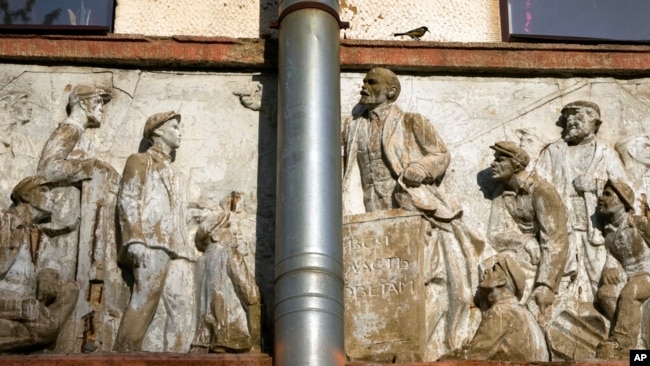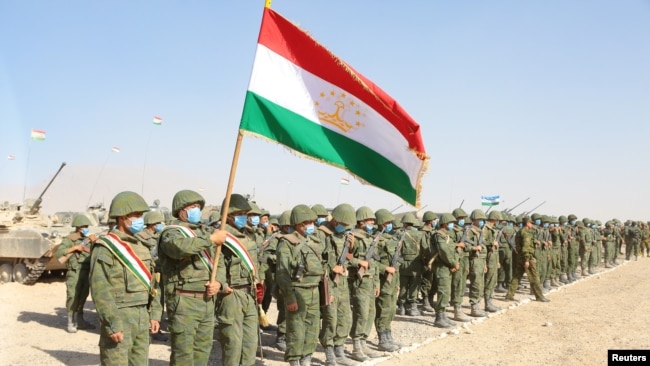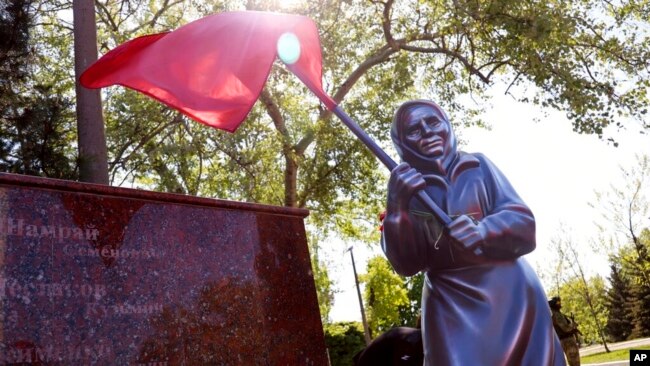[ad_1]
Russia’s influence in the former Soviet republics of Central Asia is expected to decline as its military struggles in Ukraine and its economy experiences the effects of sanctions imposed by the United States and allied countries, experts say.
Russia has long been influential in five countries in the region – Uzbekistan, Kazakhstan, Kirkistan, Turkmenistan and Tajikistan – because of the income of migrants from these countries employed in Russia, says Jennifer Brick Murtazashvili, head of the Center for Governance and Markets in University of Pittsburgh.
Data released in March by the World Bank underscores the importance of these revenues, which it says in some cases “were comparable, or even greater, than exports of goods and services from these countries.”
“In the past, Central Asian countries feared Russia because they knew that (their economic relationship) would change if they offended Moscow,” Murtazashvili told VOA. But, she says, the balance has changed because of the war in Ukraine, and these five countries “already understand that Russia is in dire need of Central Asian labor.”
“These countries understand that they already have influence and are beginning to realize that they can exercise it,” she said. “Right now, we see a stronger Central Asia that will have more freedom to choose between the great powers.”
Russia’s weakness opens the door for China to play a bigger role in the region, but also increases opportunities for other countries that want to do business in the region, says Murtazshvili.
On Tuesday, exactly three months after Russia launched its aggression in Ukraine, China promised $ 37.5 million in “free financial assistance” to Uzbekistan “for the implementation of joint projects of social significance,” according to announcements made by the Uzbek government.
The agreement was signed by Uzbekistan Deputy Minister of Investment and Foreign Trade Aziz Voitov and Chinese Ambassador to Tashkent Jiang Yan, according to a statement posted on the website of the Uzbek Ministry of Investment and Foreign Trade.
A day earlier, Assistant Secretary of State for South and Central Asian Affairs Donald Lu led a U.S. delegation on a five-day trip to the region, the Kyrgyz Republic, Uzbekistan, Tajikistan, and Kazakhstan.
According to the State Department, the purpose of the trip is to “strengthen the United States’ relationship with the region and advance cooperation efforts to create a more interconnected, prosperous, and secure Central Asia.”
Last week, Secretary of State Antony Blinken met in Washington with Mukhtar Tileuberdi, Kazakhstan’s foreign minister.
According to the State Department, during the meeting, Secretary Blinken reaffirmed “the US commitment to minimize the impact of sanctions imposed by Russia on allies and partners, including Kazakhstan.”
Rafaello Pantucci, a researcher at the University of International Studies in Singapore and author of the volume “Sinostan: China’s Unplanned Empire,” says that although Russia’s influence is expected to wane, it will continue to be a major player in the region.
“Central Asian leaders” have always had a level of concern and skepticism about Russia, and now it will only get worse, “he told VOA. “Natural connections and public opinion will make it difficult to end the relationship completely, but it is clear that regional governments are not exalted by President Putin’s actions in Ukraine.”
At the start of the war, President Putin telephoned the leaders of Central Asian countries to seek support for the invasion he had planned for Ukraine. But all five leaders responded with restraint, not supporting or condemning the attack.
China, meanwhile, has long expanded its presence in the region, says Mr Pantucci. “But the region will be increasingly disappointed, because unlike Russia, China is not very interested in intervening to resolve things, but is focused only on its own interests.”
Temur Umarov, a research fellow at the Carnegie Endowment for International Peace, also predicts that Russia will continue to have influence in the region, despite the problems created by the war.
“Russia understands what is happening here in Central Asia and does it better than any other foreign actor in the region,” Mr Umarov told VOA from Bishkek, the capital of Kyrgyzstan. “So this is something really difficult to change.”
According to Mr. Umarov, the five Central Asian countries have been trying to diversify their relations with other parts of the world since gaining independence from Moscow in the early 1990s.
“Russia’s actions in Ukraine will accelerate the process of replacing Russia in these countries,” Umarov said. “Of course, China is the number one country that has the capacity to do this in many areas, especially in terms of logistics, because of its geographical position and its economy, because of China’s economic strength that other countries they do not have it “.
But, according to Ms. Murtazashvili, China does not enjoy much popularity in Central Asia. “People understand what happened to the Uighurs and they are afraid of getting too close to China,” she said.
Three of these five Central Asian countries share borders with China’s western region of Xinjiang, where Beijing is accused by the United States and other countries of committing genocide against the Uighur minority. Beijing denies the allegations as lies and says China is fighting “three forces of evil”, namely separatism, extremism and terrorism in the region.
Culturally, religiously and ethnically, these Turkish-majority countries in Central Asia feel closer to the Uyghurs in Xinjiang./Voa
top channel
[ad_2]
Source link


















